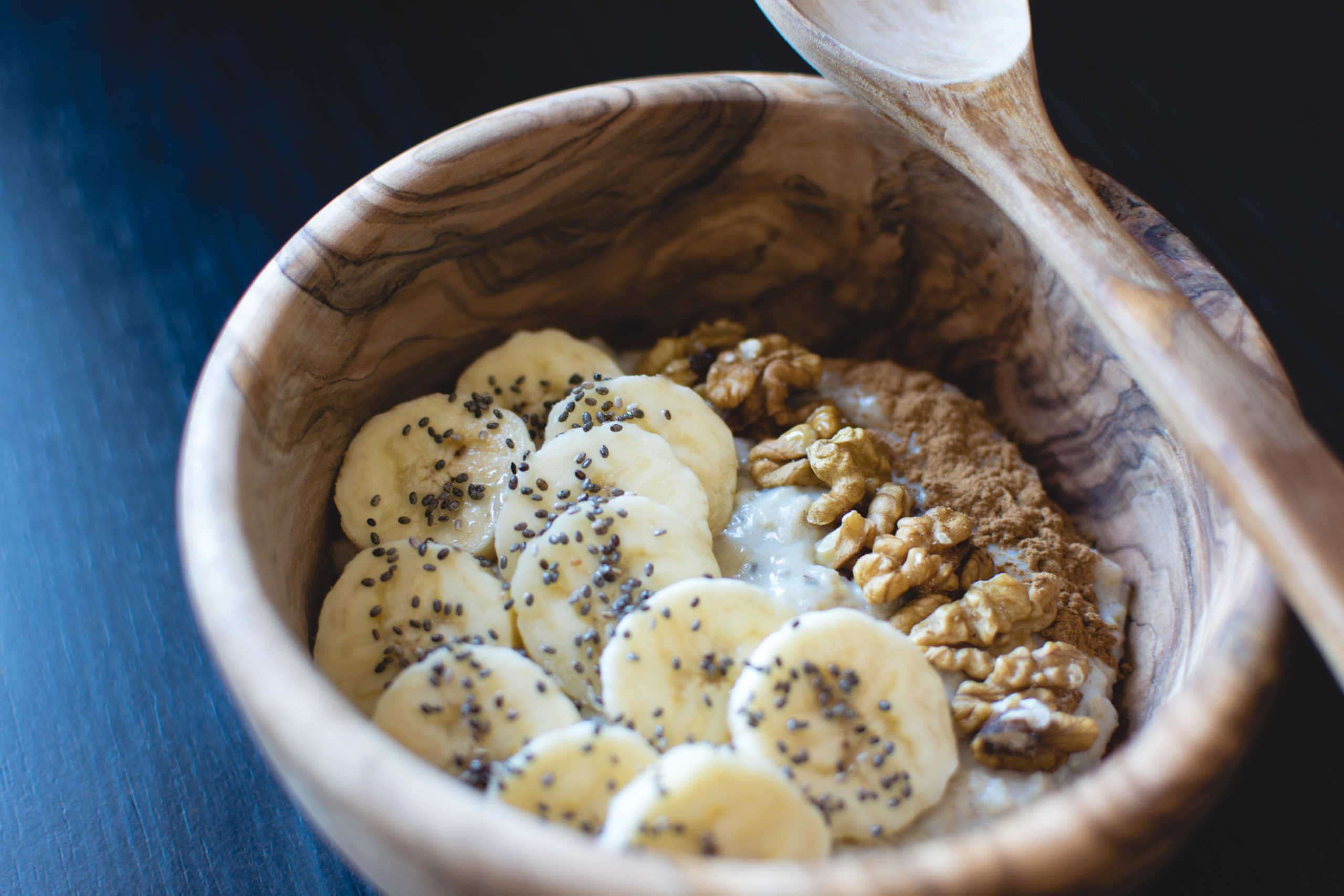Most of us realize that eating overly processed foods make us feel worse, but have you ever considered that HOW you eat your food may also have an impact? The behavior around eating food is under appreciated, so I wanted to take minute to give you 4 great tips that may help improve digestion, give you more energy, and complement your efforts toward vitality and wellness.
1. MASTICATE. Big word, simple meaning. Mastication is just a technical term for chewing your food. This action, however, has a profound impact on your digestive fire. When you chew your food thoroughly, you break it down into smaller pieces so that enzymes in your mouth can begin to breakdown macronutrients. Most notably fat and carbohydrates. The more you chew before swallowing, means the more surface area you create for the digestive enzymes to elicit their action. Some experts have suggested chewing 20+ times before swallowing but I personally have found this difficult, if not tortuous. The more the better, but for a beginner, I like to suggest chewing just 5 more times than normal. This simple act of awareness will also help to slow us down so we enjoy our food more too! Great side effect, huh? It’s also difficult to count your chews while driving or texting so maybe this tip also reminds us to not eat and text.
2. EAT BREAKFAST. How many blog posts have been written on this topic? A bizillion. Why? Because it’s true! I have had many clients over the years that have a hard time with this, mostly due to habits set over the years. Study after study have demonstrated how eating breakfast can lower total caloric intake, reduce serum LDL cholesterol, increase insulin sensitivity, and possibly improve brain power. Getting protein, fat, and fiber into this morning meal is key to success and stable blood sugar. Great non-traditional options include chia breakfast pudding recipe, breakfast bakes, or bean-free hummus with veggies (yes you can eat hummus for breakfast!).
3. EAT REGULARLY. Again, for some of us this is obvious because we just don’t like the way we feel when we skip a meal. But, in a randomized controlled trial, irregular meal pattern, when compared to normal meal patterns, resulted in insulin resistance and higher than normal markers for total and LDL cholesterol. So, for those of you already eating on a regular schedule (3 meals/day and maybe snacks), kudos! For those of you who regularly skip meals, here is your motivation to getting yourself back on track.
4. AVOID DISTRACTIONS. This tip ties well into #1. Distracted eating is one of the best ways to overeat and do so rapidly. A great example of this includes the average American who spends 5 hours in front of the television, some time of which he or she is nibbling on snacks or eating a meal. For instance, if you have ever eaten popcorn at the movie theater, you probably understand this phenomenon. The popcorn disappears FAST! Way faster than we realize. Where did it go? Did I really eat all that? The distraction of TV or a movie will interfere with satiety cues and confuse your brain into eating more than it really needs. There are certainly other distractions like texting or using your smart phones, busy schedules not allowing us to sit for meals, etc. When I worked in a pediatric setting, removing distractions was one of the #1 recommendations I made for parents of picky eaters. When children are distracted by the TV, toys or other external stimulus and not sitting at the table, they cannot concentrate on the nourishment in front of them and tend to redirect attention to the distraction. I know some adults who are the same way, but replace toys again with work, phone calls, driving and texting. Turning off the TV and silencing your cell phones and sitting down at the table for a meal is probably one of the most effective tools out there for mindful eating. Don’t want to eat in silence? Turn on some background music and invite a good friend over to share a meal. Heck, light a candle and drink your water from a fancy glass if it gets you motivated!
Please leave a comment below. What other food behavior tips do you follow to support your health and wellness goals?
References:
1. Gaby, A. (2011). Fundamentals of diet: Dietary behavioral factors. Nutritional medicine (pp. 7). Concord, NH: Fritz Perlberg Publishing.
2. Danowsky, B. My Big Fat Brain. Accessed: 9 January 2015.



